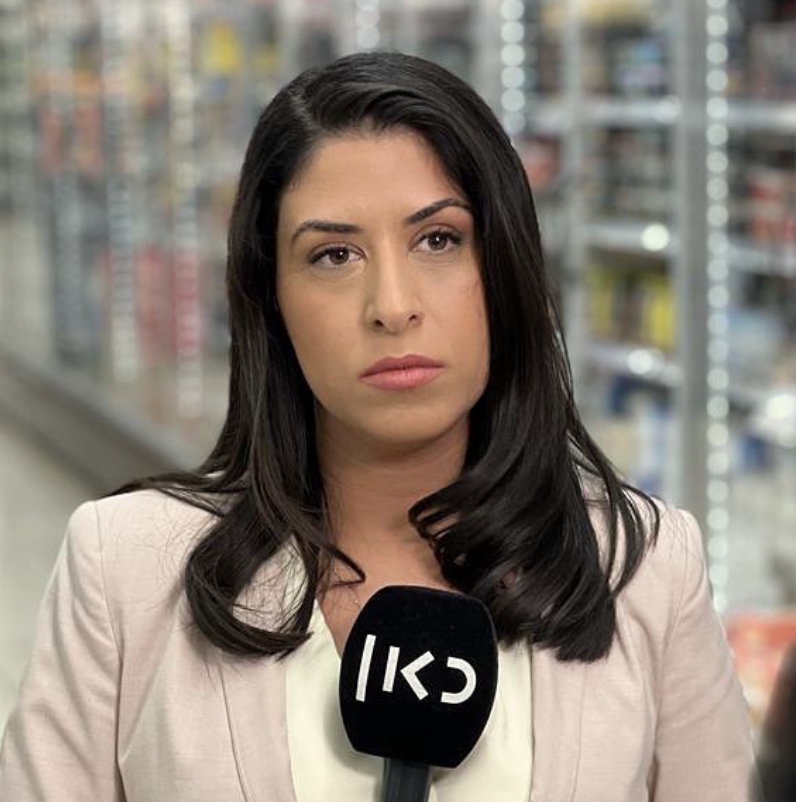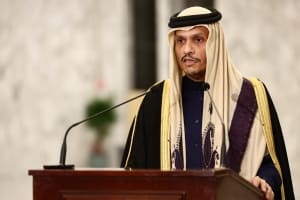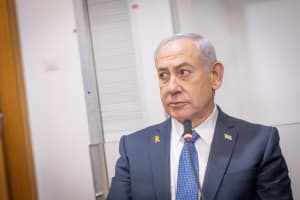7,215,256 voters: Municipal elections are underway in Israel
Men vs women in Tel Aviv, the wild boars problem that could decide the race in Haifa, and the battle for Jerusalem city council control

The local election polling stations opened on Tuesday morning in 242 municipalities, local councils, and regional councils across the nation. The number of eligible voters stands at 7,215,256, including 747,586 citizens who will vote for the first time. Eighty-six of the candidates running for for the head of ocal authorities are women, compared to 721 men.
In 11 local and regional authorities, from which residents were evacuated, the elections will be held on Nov. 19. In the south: The city of Sderot and the regional councils of Eshkol, Sha'ar HaNegev, Sdot Negev and Hof Ashkelon. In the north: Kiryat Shmona, Shlomi, the regional councils of Upper Galilee, Mevo'ot Hermon, Merom HaGalil, and Ma'ale Yosef.
Four 80-year-old candidates are running in the elections: Ron Huldai in Tel Aviv, Yona Yahav in Haifa, Tzuri Haim in Kiryat Motzkin, and Ilan Sade in the Menashe Regional Council. The oldest candidate for the head of a local authority is Tali Argaman, 74, from Giv'atayim, and the two youngest candidates are 31-year-old Ella David-Hadas from Shoham and Michal Shapira from Ma'ale Ephraim. Forty-eight candidates are 21 years old, and the oldest candidate is Adawi Samih, 105, running on the list for the Tur'an Local Council.
The votes will be counted when the polls close at 10 p.m. In light of the increased number of duplicate envelopes from voting in the IDF and hospitals, estimated at around 400,000 (compared to 95,000 in the 2018 elections), the final results are only expected to be published toward the end of the week. In local authorities where none of the candidates for head of the authority received more than 40% of the votes, a second round of elections will be held on March 10. This date was brought forward, taking into account voters and candidates who observe the month of Ramadan.
Summary of 2024 elections – who against whom in the big cities:
Tel Aviv
The candidates: Ron Huldai – a ret. brigadier general, serving as the mayor for about 25 years, chairman of the Forum 15 (the Israeli Forum of Self-Government Cities), Orna Barbivai – a ret. major general, the former economy minister, and Yuval Zellner – a former Knesset member and a lawyer.
Polls indicate a 6% gap, so Huldai's loss would be considered dramatic. His performance during the war in Gaza and the protests against the judicial reform, in which he took an active part, are expected to work in his favor. On the other hand, low voter turnout will not be good for him. The desire to see more women in key positions also helps Orna Barbivai, as well as the fact that he has been in office for 25 years while calling to limit the term of the prime minister. Huldai runs with Asaf Zamir and Orna Barbivai with Tzipi Brand.
Ramat Gan
The candidates: Carmel Shama – the incumbent mayor, and former Knesset member. Liad Ilani – former deputy mayor.
The incumbent mayor, Carmel Shama, leads these elections and enjoys great support in the city, but a low voter turnout could play against him. He is running against Liad Ilani, a friend of the former mayor, Israel Singer, who was investigated by the authorities on suspicion of criminal activities. Ilani used to be Shama's partner, but ego disputes between the two regarding media visibility led him to resign and join the opposition.
Recently, Shama's rivals distributed flyers that he was tainted by alleged corruption. This is ironic since Singer was arrested by the police and questioned on suspicion of corruption. Shama was previously investigated on suspicion of tax evasion, as first reported by KAN News.
Holon
The candidates: Moti Sasson, serving as mayor for about 30 years, and Shay Kinan.
According to estimates, Sasson will not win the elections. Kinan previously received the support of the Yesh Atid party, until his LGBT-phobic statements alongside statements against Lapid were reported on KAN and the party withdrew its support.
Bat Yam
Contestants: Zvika Brot – the incumbent mayor, Shlomo Lahiani – a former mayor who was convicted of breach of trust, and Yossi Bachar – a former mayor.
Brot enjoys public support and is considered to have created a positive image change and development momentum for the city in the last five years. Lahiani, who was convicted of fraud and breach of trust in the past - and even spent time in prison, enjoys popularity in the city, however, many residents are disturbed by the fact that he was convicted of things he did during his tenure.
Bnei Brak
The candidates: Hanoch Zeibert – a former mayor and representative of Agudat Israel [ultra-Orthodox party], Uriel Buso – the Minister of Health from Shas party, Yaakov Vider – a member of the city council representing Likud, and Tzvi Reich – a member of the city council representing the Torah List from the Jerusalem faction.
Zeibert is expected to win as part of a political deal. According to a KAN News investigation, Buso does not live in Bnei Brak, but in Petah Tikva, however he is registered as a tenant of a warehouse in the city. The purpose of his candidacy is to trade Shas nominations in other ultra-Orthodox cities, including Elad and Beit Shemesh. In the current elections, there is a chance that the city residents will vote against the instructions of their leaders, especially because of a severe rat problem that has hit the city. The difficult sanitary situation in the city means that the residents are looking for a candidate who will really work for them.
Ramat Hasharon
The candidates: Itzik Rochberger – a former mayor convicted of breach of trust, Gail Shoresh – a former Mossad agent, Keren Maximov and Guy Klenber.
The incumbent mayor Avi Gruber is not running in the election. Rochberger, who was convicted of fraud and breach of trust - but was not sentenced to prison, is popular with the city's residents. Shoresh faces criticism after presenting herself as a senior figure in the organization.
Rishon LeZion
The candidates: The incumbent mayor, Raz Kinstlich, had a great chance of winning, but Yitzhak Avshalomov decided to run at the last moment.
Haifa
The candidates: Einat Kalisch-Rotem – the incumbent mayor, Yona Yahav – a former mayor, David Atiyah – the CEO of the Ministry of Housing, Yaakov Borovsky – a former chief of police in the Coastal District.
Yahav had served as a mayor for about 15 years until the last elections, in which he lost to Kalisch-Rotem. The residents remember his activity to dilute the wild boar population in the city, which gives him a certain advantage. According to the polls, Yahav and Atiyah are expected to advance to the second round. Although Kalisch-Rotem won the 2018 elections, there is great anger towards her among the residents, mainly due to allegations that she is not attentive to their problems and did not try to solve the wild boars' crisis in the city, which only intensified throughout her term, mainly due to the Covid 19 pandemic.
Jerusalem
The candidates: Moshe Leon – the incumbent mayor, Yossi Havilio – the deputy mayor representing the Jerusalem Union faction.
Ten out of 15 lists announced support for Leon. The most prominent ones were the ultra-Orthodox parties, which currently hold about half of the seats in the city council: Degel HaTorah, Shas and Agudat Yisrael. The big question in the capital's elections is the distribution of mandates within the council and whether it will be controlled by an ultra-Orthodox or a secular majority. In the previous elections, Leon was elected while his list was not.

Dana Yarkechy is an economic correspondent for KAN 11.













